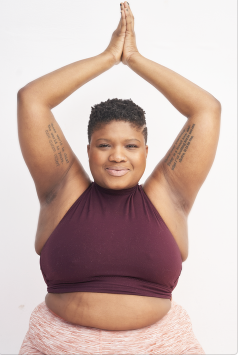Thin? Fat? Who Cares? Wear the Yoga Leggings
A New York Times op-ed insinuated that heavier gym-goers should stick to sweatpants. Millions of women beg to differ.
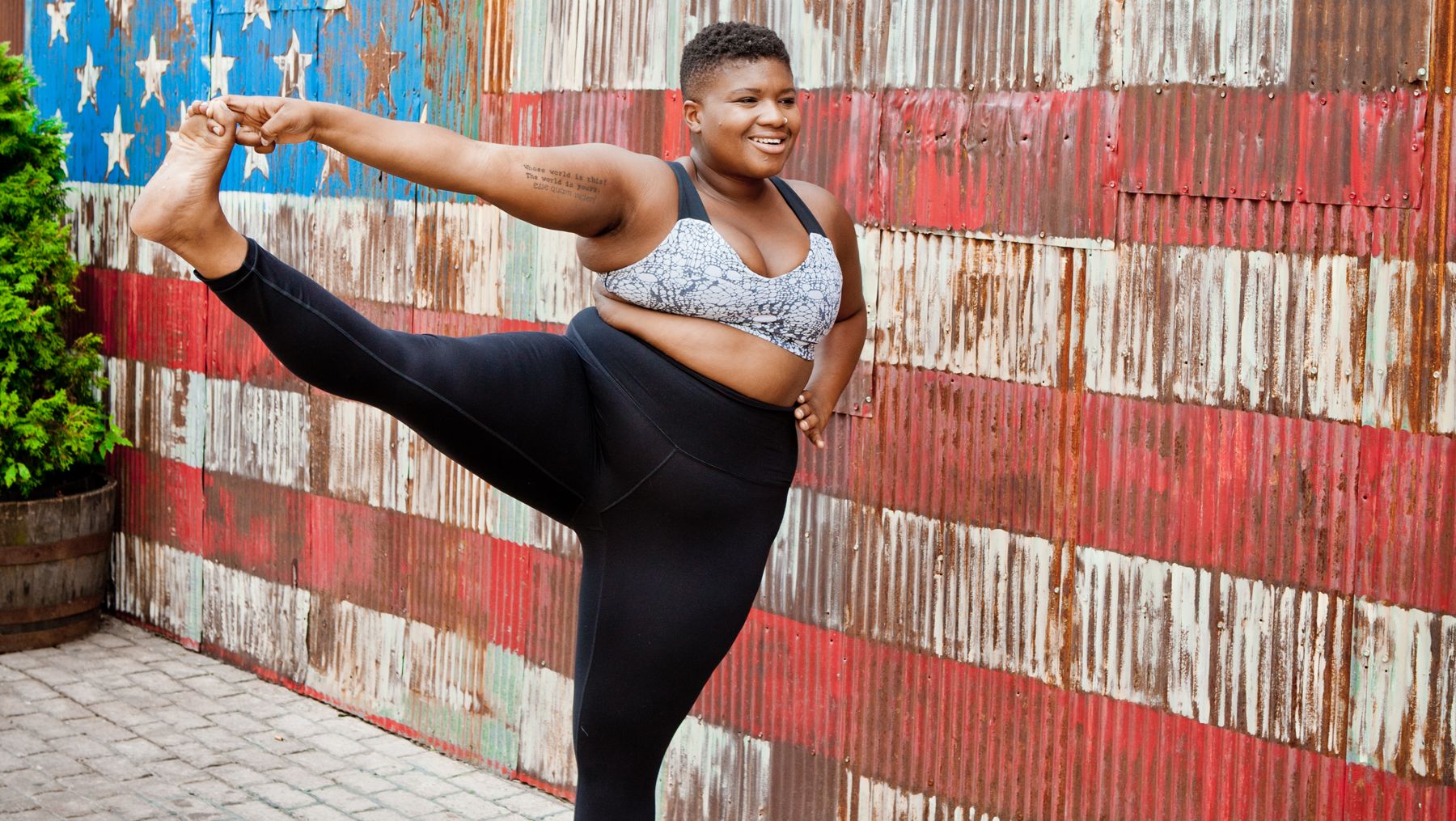
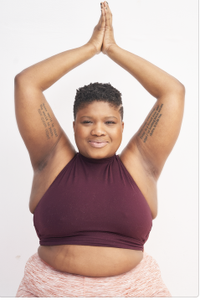
Like Honor Jones noted in her incendiary New York Times op-ed this weekend, I too have noticed that, lately, everyone and their mother has been praying to the church of mesh-paneled yoga leggings. And I mean literal mothers—people of all ages and sizes do (and are absolutely allowed to) kneel at the altar of sheer AF leggings.
Look, I can’t lie. I, too, am a little disgusted by the latest monster to bloom from the yoga-industrial complex. I mean, can someone logically explain to me when and why apparel become the barometer for the strength of a person’s yoga practice? It’s as though owning the latest pair of Lululemon leggings puts you at the top of an unspoken pecking order in the Modern Yoga World. Trust me, I can talk your ear off about the spiritual economics of that topic, but I’ll save my ruminations for another day. Because I have to admit—the church of sheer leggings ain’t all bad.
We're in an age when a morning yoga class is motivation enough to wear an ass-hugging poly-blend all day, cellulite be damned.
If I look on the bright side (which, admittedly, can be hard to do after this last year), I’d say worshipping tight leggings is a step in the right direction. A decade ago, the mere notion of walking around in spandex with persistent camel toe would be a source of legit anxiety for your average cis-het femme. What if someone were to notice your thunder thighs and rump roast? But voila! Here we are in an age when a morning yoga class is motivation enough to wear an ass-hugging poly-blend all day, inevitable camel toe and cellulite be damned.
Here’s the thing: I totally get why someone might be salty about people forgoing sweatpants in favor of said skintight poly blends. We live in a capitalist society that functions at its peak when all human beings (consciously or subconsciously) believe there is a body hierarchy. The hierarchy is pretty simple: “pretty” people at the top and “ugly” people at the bottom. It puts a premium on the cisgender heterosexual white male gaze and it’s touted by nearly every mainstream media outlet on the planet.
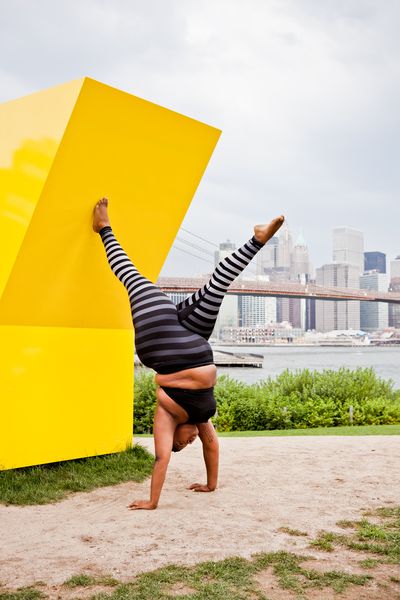
The author doing a handstand in yoga leggings.
Personally, I find that narrative to be extremely boring and basic. Not only is it ignorant of the infinite array of beauty in this world, but it puts hard lines around the idea of what it means to be “pretty.” “Pretty” often blooms in places that mainstream culture wouldn’t think to look—and therefore will never acknowledge or understand.
Nothing is wrong with sweatpants. This has never been up for debate—everyone loves them and people still wear them. They are, in fact, cool right now. (See: Exhibits A, B, and C.) And if we’re specifically talking about people who identify as women, show me a woman who doesn’t have a pair of baggin’, saggin’ sweats specifically for days when she doesn’t want to wear leggings.
But what’s wrong with people enjoying yoga leggings? I mean, especially if it makes a person feel sexy? What's wrong with feeling like a Texas Red Hot from time to time? What’s wrong with feeling good about yourself? It may seem crazy to some, but I’m here to preach the gospel of being dressed like a sausage—it can make a person feel very good about herself.
Get exclusive access to fashion and beauty trends, hot-off-the-press celebrity news, and more.
Every curvature and dimple serves as a metaphorical middle finger to the patriarchal body-shaming status quo.
Imagine a world without a body hierarchy. Imagine a world where it doesn’t matter what kind of pants a person wears to the gym. In order to get to body liberation utopia, we have to put a moratorium on passing judgement on the wardrobe decisions of strangers. I’m talking about completely rewriting the standards of our society. And, yes, even in this new world, more than a few people will wear tight, mesh-paneled leggings to the gym. It’s okay. I can’t be sure, but I truly doubt that yoga leggings are going to trigger the debilitating anti-feminist wave predicted by Jones.
I think the real work that needs to be done is understanding why exercise pants have become a battle field. What kind of deeply rooted, body-negative bedrock are we shaking by encasing our fat rolls in rainbow-colored casing? Every curvature and dimple serves as a metaphorical middle finger to the patriarchal body-shaming status quo that profits from human beings believing they are unworthy of garments. There’s no shame in yoga leggings and there’s no shame in sweatpants—wear what makes you feel good and try not to let the haters get in the way of basking in your own greatness. I’m not trying to throw shade on anyone for being the product of a body-negative society (trust me, I carry the exact same baggage). I’m just another self-identified woman trying to break free of the chains created by outdated and discriminatory standards of beauty. And sometimes breaking the chains of discriminatory beauty standards means wearing tight AF leggings and basking in the freedom of your own daring.
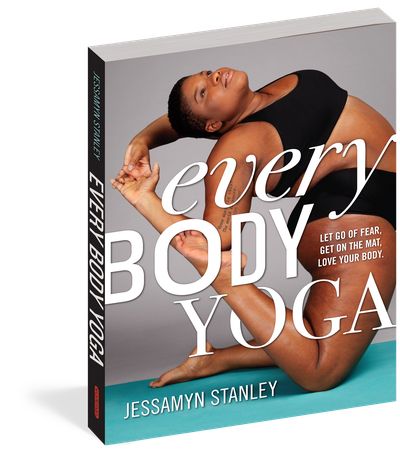
Jessamyn Stanley is an internationally recognized yoga teacher and author of Every Body Yoga.
Jessamyn Stanley is an award winning yoga instructor, intersectional activist, and author of 'Every Body Yoga.' She empowers her audience of over 520k, to break down barriers: both those that society has set and that they have set for themselves. Jessamyn's work in the wellness space centers around being in community and creating space for students to restore and honor their authentic selves. Jessamyn has been featured in many media outlets including The New York Times, Good Morning America, Teen Vogue, Cosmopolitan, Marie Claire, Allure, Buzzfeed, Shape, Out Magazine, New York Magazine, The Guardian, and Forbes. She broke boundaries for plus size bodies with her February 2019 cover of Yoga Journal. Most recently, Jessamyn was featured in adidas' Reimagine Sport campaign challenging old stereotypes and celebrating movement of all kinds. Jessamyn is a leading voice on intersectional identity and 21st century yoga. She has won many awards for her social influence and unique approach to yoga. With an articulate message of representation and visibility, Jessamyn also speaks across the country, advocating for body acceptance, female empowerment as well as African American and LGBTQ inclusion. In early 2019, Jessamyn launched an app titled The Underbelly, a series of yoga classes available internationally by web, iOS, and Android. Her virtual yoga studio is a home for wellness misfits who may feel displaced, discouraged or overlooked due to a lack of diversity in the health and fitness community.
